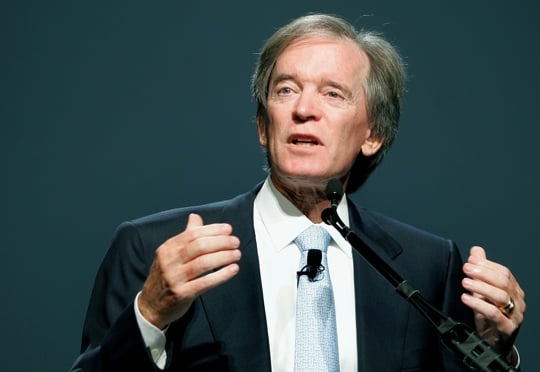Bill Gross, who runs the world's biggest bond fund at Pacific Investment Management Co., cut holdings of Treasuries last month for the first time since eliminating the securities from his portfolio in February 2011.
Gross reduce the proportion of U.S. government securities in Pimco's $252 billion Total Return Fund to 37 percent of assets, from 38 percent in January, according to a report on the company's website. He raised mortgages to 52 from 50 percent, the highest level since June 2009. Pimco doesn't comment directly on monthly changes in its portfolio holdings.
U.S. government-backed mortgage bonds have returned 0.59 percentage point more than similar-duration Treasuries this year through yesterday, according to Barclays Capital index data. Mortgages have gained in part on speculation the Federal Reserve may expand purchases of the securities as part of its stimulus measures to keep the economic recovery going.
“We like mortgages at the moment,” Gross, co-chief investment officer and founder of Newport Beach, California- based Pimco said today in a radio interview on “Bloomberg Surveillance” with Tom Keene and Ken Prewitt. “‘Mortgages are a potential source of Fed purchasing going forward.”
In January, Gross raised the fund's U.S. government and Treasury holdings to the highest level since July 2010 after missing a market rally by eliminating the securities from the portfolio last year.
RELATED ITEM Fund firms advisers recommend most »
The Total Return Fund attracted $835 million of investor deposits in February as performance rebounded. The new money marked a second month of assets going into the fund, after three straight months of redemptions, according to data compiled by Chicago-based Morningstar Inc. (MORN) Investors pulled about $3 billion from the fund in the three months ended Dec. 31, bringing withdrawals last year to $5 billion, Morningstar said.
Gross's fund has returned 6.34 percent in the past year, beating 45 percent of its peers, according to data compiled by Bloomberg. It gained 2.91 percent this year, beating 96 percent of its peers.
Meanwhile, Treasuries have lost 0.5 percent in 2012 as of yesterday, compared with a return of 9.8 percent last year, Bank of America Merrill Lynch's Treasury Master index shows.
Pimco increased holdings of emerging-market debt to 10 percent in February from 9 percent the previous month and reduced bonds of non-U.S. developed nations to 7 percent from 11 percent.
Playing Defense
Gross pared the Total Return Fund (PTTRX)'s net cash-and-equivalent position to negative 31 percent, from negative 35 percent in January. It can have a so-called negative position by using derivatives, futures or by shorting.
He recommended last month that investors should embrace a defensive strategy because of the limits of zero-bound interest rates and systemic debt risk in global financial markets.
Emphasize income, de-emphasize derivative structures that are fully valued and be willing to accept returns lower than historical averages, Gross wrote in his monthly investment outlook posted on the company's website on Feb. 28.
“The offensively oriented investment world that we have grown so used to over the past three decades is being stonewalled by a zero-bound goal-line stand,” he wrote. “Investment defense is coming of age.”
Pimco's government and Treasury debt category includes fund holdings of U.S. Treasury notes, bonds, futures and inflation- protected securities.
The firm, a unit of the Munich-based insurer Allianz SE, managed $1.36 trillion of assets as of Dec. 31.
--Bloomberg News--







